Octopus, a cephalopod celebrated in global cuisines for its unique texture and mild, briny flavor, has long perplexed home cooks and professional chefs alike. The question of how long to cook octopus until it is tender and not rubbery remains a culinary conundrum. Achieving the ideal balance between succulence and chewiness requires precision, patience, and an understanding of the science behind cooking this intriguing sea creature. This article delves into the factors influencing cooking time, explores various cooking methods, and provides actionable tips to ensure your octopus dishes are consistently restaurant-worthy.
The Science Behind Octopus Tenderness
Octopus meat is notoriously tough due to its high collagen content, a protein that firms up when heated. Unlike mammals, which have muscle fibers that soften with moderate cooking, octopus collagen requires prolonged, gentle heat to break down into gelatin, resulting in tender flesh. However, overcooking can reverse this process, causing the meat to become dry and rubbery. The challenge lies in finding the sweet spot where collagen transforms without losing moisture.
Factors Influencing Cooking Time
-
Size and Species:
Smaller octopuses (under 2 pounds) cook faster than larger specimens. The Octopus vulgaris, commonly found in Mediterranean and Asian markets, typically weighs 2–5 pounds and requires 20–40 minutes of boiling. Giant Pacific octopuses, weighing up to 50 pounds, need over an hour.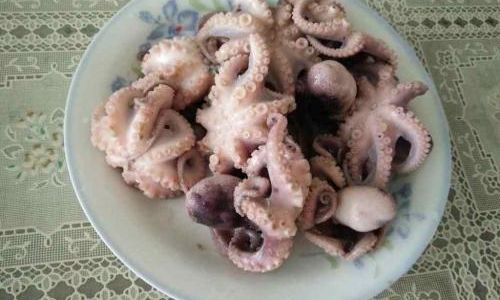
-
Fresh vs. Frozen:
Freezing octopus is a natural tenderizing method. The formation of ice crystals disrupts muscle fibers, reducing cooking time by 10–15 minutes. Many chefs prefer frozen octopus for its convenience and consistency. -
Preparation Techniques:
- Beating: Some traditions involve bashing the octopus against rocks or using a meat mallet to tenderize it mechanically.
- Marinating: Acidic marinades (lemon, vinegar, or wine) can denature proteins, but over-marinating may toughen the meat.
- Brining: A saltwater soak (1 hour per pound) helps retain moisture during cooking.
-
Altitude and Equipment:
High-altitude cooking lowers boiling points, extending cooking times. Pressure cookers slash time by 50%, while slow cookers demand 6–8 hours on low heat.
Cooking Methods: Timing and Techniques
Boiling and Simmering
- Method: Submerge the octopus in a pot of cold, salted water. Bring to a gentle simmer (never a rolling boil, which toughens the meat).
- Timing:
- Small octopus (1–2 lbs): 20–30 minutes.
- Medium (3–4 lbs): 30–45 minutes.
- Large (5+ lbs): 45–60 minutes.
- Test for Doneness: Pierce the thickest part of a tentacle with a paring knife. It should glide in easily, and the flesh should feel tender, not springy.
Grilling and Charring
- Pre-Cooking: Boil or simmer until partially tender (reduce time by 10–15 minutes).
- Grill Time: 3–5 minutes per side over high heat. The goal is to achieve charred edges without drying out the interior.
- Tip: Baste with olive oil or marinade to prevent sticking.
Sous-Vide Precision
- Method: Vacuum-seal octopus with aromatics (garlic, herbs, olive oil) and cook in a water bath.
- Timing:
- 176°F (80°C) for 4–6 hours (tender).
- 185°F (85°C) for 2–3 hours (fall-apart texture).
- Advantage: Unmatched consistency, but requires specialized equipment.
Braising and Stewing
- Technique: Sear octopus in a hot pan, then simmer in a flavorful liquid (tomato, wine, or broth).
- Timing: 1.5–2 hours on low heat. Ideal for stews and ragùs.
Pro Tips for Tender Octopus
-
The Cork Myth:
Adding a wine cork to the cooking liquid is a Mediterranean tradition. While no scientific proof exists, many chefs swear by its subtle tenderizing effect—likely due to tannins interacting with proteins. -
Ice Bath Shock:
After boiling, dunk the octopus in ice water for 1 minute. This halts cooking and firms the flesh for grilling. -
Acidic Finish:
Toss cooked octopus in lemon juice or vinegar 5 minutes before serving to brighten flavor without over-tenderizing.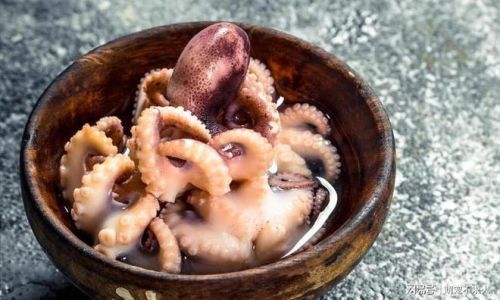
-
Avoid Rapid Temperature Changes:
Thaw frozen octopus slowly in the refrigerator. Sudden thawing can cause texture issues.
Recipe: Mediterranean-Style Grilled Octopus
Ingredients:
- 1 medium octopus (3–4 lbs), cleaned
- 1 cup dry white wine
- 1 lemon, halved
- 4 garlic cloves, smashed
- 1 bay leaf
- 1 tbsp black peppercorns
- 1/4 cup olive oil
- 1 tsp smoked paprika
- Fresh parsley, chopped (for garnish)
Instructions:
-
Cook the Octopus:
- In a large pot, combine octopus, wine, lemon, garlic, bay leaf, and peppercorns. Cover with water.
- Bring to a simmer and cook for 35–45 minutes until tender.
- Drain and cool slightly.
-
Grill:
- Preheat grill to high. Cut octopus into tentacles and body pieces.
- Toss with olive oil and paprika. Grill 3–4 minutes per side until charred.
-
Serve:
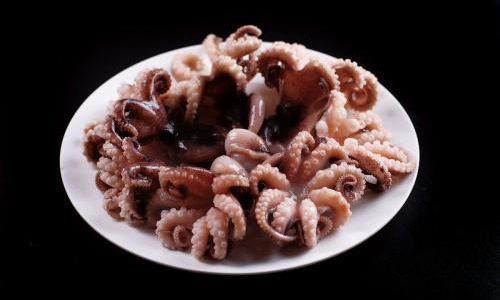
Sprinkle with parsley and a squeeze of lemon. Pair with crusty bread and aioli.
Recipe: Asian-Inspired Stir-Fry
Ingredients:
- 1 lb cooked octopus, sliced
- 2 tbsp vegetable oil
- 1 tbsp grated ginger
- 3 garlic cloves, minced
- 1 red chili, sliced
- 1/4 cup soy sauce
- 1 tbsp mirin
- 1 tbsp honey
- 4 scallions, chopped
- Sesame seeds (for garnish)
Instructions:
-
Stir-Fry:
- Heat oil in a wok. Add ginger, garlic, and chili; stir-fry 1 minute.
- Add octopus and stir-fry 2–3 minutes.
-
Glaze:
Mix soy sauce, mirin, and honey. Pour over octopus and toss to coat.
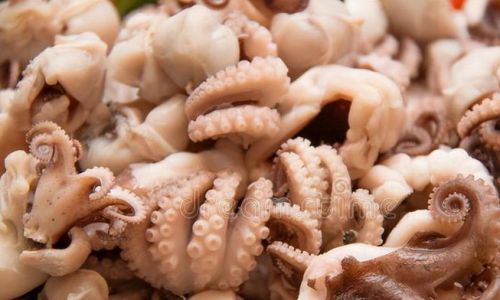
-
Finish:
Add scallions and stir-fry 1 minute. Garnish with sesame seeds.
Common Mistakes to Avoid
-
Overcooking:
Octopus continues to cook slightly off heat. Remove from the stove 1–2 minutes before desired tenderness. -
Under-Seasoning:
Octopus absorbs flavors best during cooking. Salt the water generously or use aromatic broths. -
Skipping Tenderizing Steps:
Relying solely on cooking time without pre-treatment often leads to toughness. -
Using High Heat:
Boiling vigorously tightens proteins. Maintain a gentle simmer.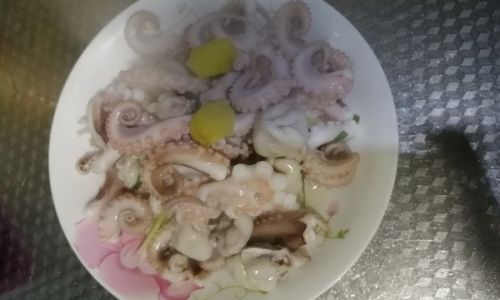
Cultural Perspectives on Octopus Preparation
- Japan: In takoyaki (octopus dumplings), the meat is parboiled and diced for texture.
- Korea: Nakji-bokkeum (spicy stir-fried octopus) uses rapid cooking to preserve snap.
- Portugal: Polvo à Lagareiro features oven-roasted octopus with olive oil and potatoes.
Conclusion: The Path to Octopus Mastery
Cooking octopus is as much an art as it is a science. By respecting the animal’s biology, adjusting techniques based on size and equipment, and embracing traditional wisdom (like the cork trick), even novice cooks can achieve tender, flavorful results. Whether you prefer the smokiness of the grill, the silkiness of a braise, or the precision of sous-vide, patience and attention to detail are your greatest allies. So next time you confront a tentacled treasure, remember: perfection lies not in the clock, but in the touch. Happy cooking!
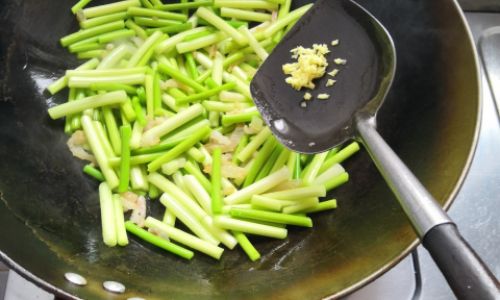
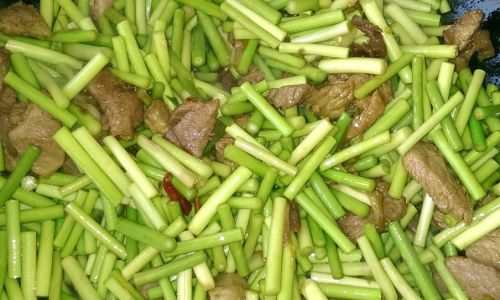
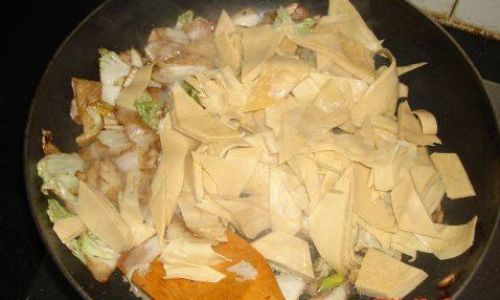
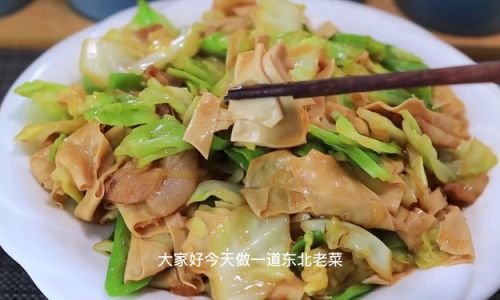
0 comments